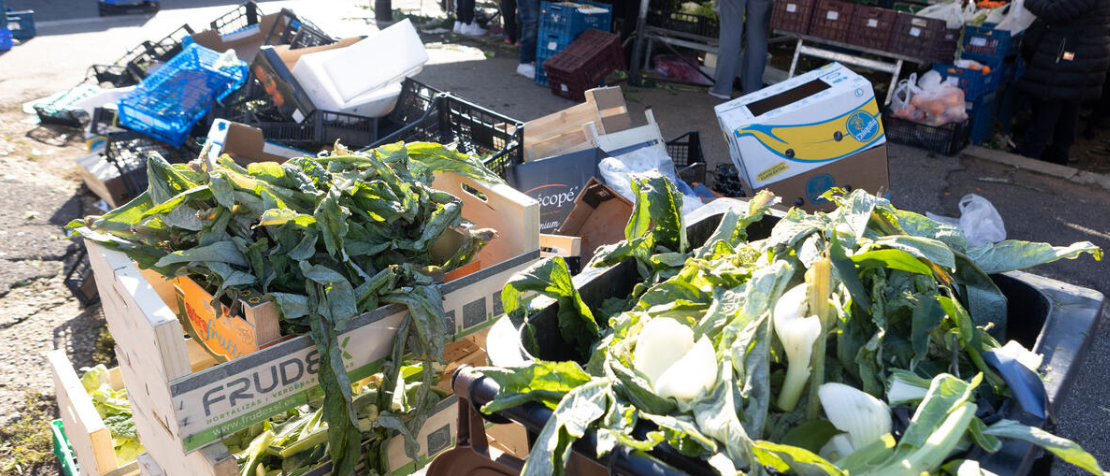Recover and redistribute: Georgia’s cities lead food loss & waste fight

©FAO/Riccardo De Luca
Growing urbanization is placing unprecedented pressure on municipal waste management systems. With cities set to house two-thirds of the global population by 2050, they are becoming the epicentres of a burgeoning consumption and waste generation cycle. Local governments, empowered to implement change on the ground, are emerging as key players in forging a path towards a zero-waste future. While the theme of this year’s Zero Waste Day (30 March), targets fashion and textiles, the concept of a day dedicated to the principle that the world needs to reduce how much we dispose of into landfills and instead reuse and repurpose products, is relevant to the fight against food loss and waste, especially in urban environments.
Globally, households account for the largest share of food waste, generating a staggering 631 million tonnes in 2022 alone. This underscores the fundamental need for local-level strategies and interventions to manage waste streams, educate and engage citizens, and ensure valuable resources aren't simply thrown away.
Municipalities are uniquely positioned to act as intermediaries between residents, food businesses, food redistribution operators and waste management systems and thus implement effective solutions. They can influence citizen behaviour through targeted campaigns, establish efficient collection and processing infrastructure for unavoidable food waste, and facilitate the redistribution of surplus food.
Recognizing the critical role of municipalities to reduce food loss and waste (FLW), the Food and Agriculture Organization of the United Nations (FAO) has recently released a publication on “Food Recovery and Distribution – A Practical Guide for Favourable Policies and Legal Frameworks in Europe and Central Asia”. This report provides timely guiding principles and recommendations for policymakers, particularly at the local level, to analyse and review their legal and policy frameworks to facilitate food recovery and redistribution—key elements of broader strategies to prevent and reduce FLW, and to support a circular bioeconomy.
Georgia offers a compelling case study illustrating the importance of such frameworks and the proactive steps being taken at the national level, which will ultimately empower its municipalities to reduce FLW.
Four years ago, FAO initiated a policy dialogue, with the support from the European Union (EU) and in close cooperation with the Ministry of Environmental Protection and Agriculture of Georgia. This involved in-depth research, comparative analysis of European food recovery and redistribution models, and extensive stakeholder consultations. Consultations, facilitated by humanitarian organizations, with potential beneficiaries within vulnerable populations, confirmed a readiness to receive donated food.
This groundwork culminated in the drafting and promulgation of the "Law of Georgia on Food Loss and Waste Reduction and Food Donation," which was approved by the Parliament of Georgia in October 2023. This legislation has a comprehensive scope, aiming to prevent and reduce food loss and waste across the entire supply chain and encouraging food donation by food businesses. Key provisions include tax exemptions for food donations and clear guidelines for the safe recovery and redistribution of surplus food. However, the success of this law hinges on effective implementation at the municipal level.
Recognizing this dependency, the initiatives are underway to empower municipalities in Georgia. With support from the EU and the Czech Development Agency, the first food bank and food donation redistribution network are being piloted in the municipality of Tbilisi and the municipality of Tskaltubo in the west Georgia accordingly. The latter is managed by a collaboration between the food bank and the local municipal administration, which has allocated storage space free of charge to enable the full operation of the donation process. The food banks will collaborate with major retailers to rescue and redistribute safe surplus food.
In the municipalities of Poti and Khashuri, FAO is also undertaking a Rapid Assessment to evaluate current FLW management systems, identify existing gaps, and assess the municipalities' capacity to implement the new law. It will also explore how better food waste management can contribute to broader municipal goals like food security and sustainability. The next step will be for municipalities to update their existing waste management plans to incorporate the food waste management hierarchy, in accordance with the Law on Food Loss and Waste Reduction and Food Donation.
In parallel, in collaboration with the Ministry of Environmental Protection and Agriculture of Georgia, FAO is developing a policy paper for food loss and waste reduction, which will further guide relevant actions by private sector and public institutions. This document will outline specific roles and responsibilities for local authorities, as well as provide frameworks for developing local food waste management plans.
Georgia's experience underscores the critical role of municipalities in translating national legislation and strategies into tangible actions on the ground. By implementing effective collection systems, fostering partnerships with food banks and businesses, and raising awareness among residents, municipalities can significantly contribute to reducing food waste, improving food security, and building more sustainable and equitable communities.
“Georgia’s proactive approach to food loss and waste reduction serves as a model for other nations. Through strategic frameworks and collaboration with key partners, we are addressing the environmental and economic impacts of food waste while improving food security for vulnerable populations. We’ve been working on this initiative since 2018, and it has taken significant time and effort to reach this point. Now, we look forward to seeing proactive collaboration with municipalities, food banks and other stakeholders to ensure the success of this critical initiative," said Jumber Maruasvhili, FAO Senior Policy Advisor.
As the world grapples with the environmental and social consequences of food waste, the lessons learned in Georgia offer valuable insights for other countries seeking to empower their local authorities to make meaningful change in the consumption and management of food surplus.
Contact
FAO Regional Office for Europe and Central Asia
20 Kalman Imre utca, H-1054 Budapest, Hungary
Tel: +36 1 4612000
Fax: +36 1 3517029
E-mail: [email protected]
